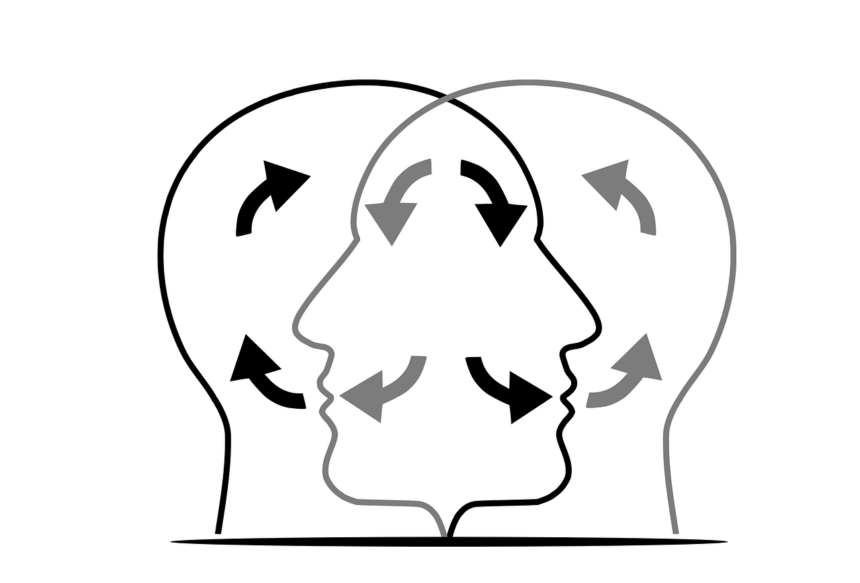Developing or refreshing empathy skills is a win-win for employees and companies.
Empathy is one’s ability to take someone else’s perspective and, in some cases, actually feel what they do in a given moment or situation. (For instance, you are empathizing when you cry because you feel the sadness of a character in a book or movie.) The literature points to three types of empathy “cognitive empathy – the ability to understand another person’s point of view; emotional empathy – the ability to feel what someone else feels; and empathic concern – the ability to sense what another person needs from you,” (Ovans, 2015; Marsh, 2018). In every aspect of life – including the workplace – practicing empathy can help to create and nurture relationships and make interactions more positive and constructive.
The Empathy Deficit
In September 2020, Scientific American published an op ed, “The U.S. has an Empathy Deficit.” In a country facing increased political and social division and a pandemic in just the past couple of years (compounding the existing challenges of all kinds), Americans do not feel that their countrymen are empathetic to their problems. They are not just socially and physically distanced; they are emotionally distanced, as well. For example, “a recent Gallup poll showed that roughly a third of the country doesn’t think there’s a problem with race relations[, which] suggests that many people aren’t grasping other people’s perspectives” (Hall, 2020), the key to expressing empathy. According to Hall and Leary, a lack of empathy undermines trust in others and the ability to cope with challenges of all kinds, social, economic, political, and more, deepening cracks in an interpersonal dynamic that already exists and building walls where new relationships could be formed.
Why are we, as a nation, so devoid of empathy? “It can feel easier to skip over empathy at times. Offering empathy to others can make us feel vulnerable, which can be challenging if we’re feeling stressed, defensive, or undervalued,” explains Vanessa Downing, Ph. D., a psychologist, executive coach and Program Manager at GroupWorks Global. “When we seek to understand the experiences of others, we’re opening ourselves up to perspectives that can be quite different than our own. It can be tough to do that if we’re not feeling like we’re well understood by others.”
If the expression of empathy is diminishing and the need for empathy is increasing, what can be done to help people to recognize that empathy is not a weakness but a valuable tool that builds trust and facilitates better outcomes?
Empathy is a Renewable Resource
The good news is, you can develop – or renew – empathy if it has fizzled for you or at your company.
On an Individual Level…
- Practice, practice, practice. “The important part is that leaders want to know, want to understand, and are willing to fail and keep trying. People want to be seen, heard, understood; but that skill comes over time with trial, error, and relationship-building on the part of the leader,” says Dr. Downing. It also comes with opportunities to understand how, when, and where to demonstrate empathy.
- Express empathy to promote business goals. In the workplace, “it can feel difficult for leaders to find the connection between conveying empathy for their team members and also driving forward business and performance goals. But when employees feel heard and understood, they are more likely to share priceless information about the barriers they’ve encountered, and what motivates them to move through obstacles.” explains Dr. Downing. “This struggle is demonstrated when a leader, in an effort to avoid hurting someone’s feelings, avoids giving feedback that could actually help others in the long run.” Instead, that leader could coach their employee to scaffold a way out or through the challenge. Not only is the issue resolved to the benefit of the organization, but the individual feels supported and has developed useful skills to address similar problems in the future.
On an Organizational Level…
- Model empathy and make it a priority. At an organizational level, leaders must demonstrate empathy as a company priority; they must model it. Senior leaders are accountable to behave as empathetically behind closed doors as they do in plain sight. They cannot forego expressing empathy for their own direct reports but still expect their direct reports to display the empathy (which they are not receiving) to employees below them on the org chart.
- Allocate attention and resources to help new and experienced leaders develop their skills in using empathy at work. “Empathy can feel like a trap for leaders if it’s defined as an ability to read minds or know exactly what the other is experiencing,” explains Dr. Downing. Helping leaders to understand the types of empathy and how and when to express it makes it a more tangible and usable competency.
In a professional environment, “empathy” is a buzzword that some organizations find difficult to operationalize. But at both the individual and organizational levels, making empathy a priority in the workplace nurtures a culture of empathy, strengthens relationships, and fosters greater success for the organization — and for those who feel supported by their colleagues and leaders.
About GroupWorks Global, LLC
GroupWorks Global partners with organizations worldwide to transform teams and create extraordinary collaborations where great things can happen. For information about GroupWorks’ offerings including consulting focused on Organization Development and Leadership, Justice, Equity, Diversity, and Inclusion (JEDI), Executive Coaching, The Coaching Leader certification program, visit www.groupworksglobal.com
References:
Hall, J. and Leary, M. (2020, September 17). The U.S. Has an Empathy Deficit. Scientific American. Retrieved December 2, 2021, from https://www.scientificamerican.com/article/the-us-has-an-empathy-deficit/
Marsh, A. (2018). The Neuroscience of Empathy. Current Opinion in Behavioral Sciences, 19, 110–115.
Ovans, A. (2015, May 4). What the Dali Lama Taught Daniel Goleman About Emotional Intelligence. Harvard Business Review. Retrieved December 2, 2021, from https://hbr.org/2015/05/what-the-dalai-lama-taught-daniel-goleman-about-emotional-intelligence





